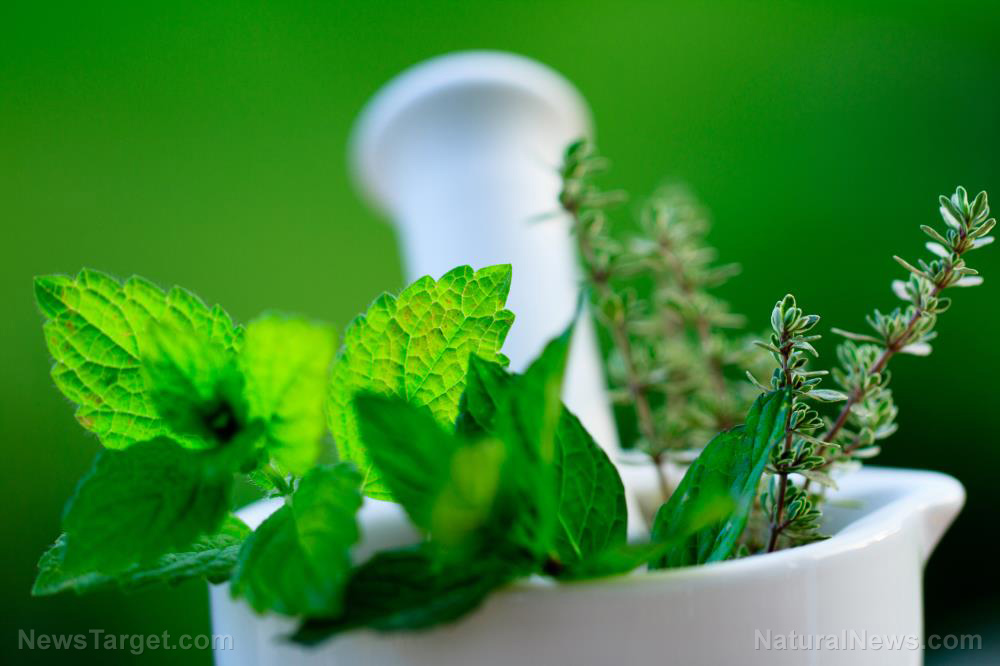5 Kid-friendly herbs for treating different ailments
10/06/2021 / By Ramon Tomey

Natural remedies have long been known for effectively addressing different ailments without the dangerous side effects that come with conventional medicine. Many parents nowadays are choosing natural cures whenever their children get sick. They head over to their gardens instead of the nearby pharmacy whenever their children experience a fever.
But with the many different herbs around, some might not be safe for young ones and could cause more harm than good. Here are five effective herbs that treat different ailments, and are proven safe for children.
Elderberry
Elderberries are known to boost the immune system and decrease the risk of getting sick. They also possess antimicrobial properties that prevent bacteria inside the body from multiplying and causing an infection.
Back in 2004, medical experts found that elderberry syrup is effective in helping people with influenza recover faster than those who did not take it or who only relied on a placebo. This is because of a compound in elderberries that prevents the flu virus from sticking to cell walls and replicating inside human cells.
Oregano
Oregano is more known as an herb that can be added into different dishes. But oregano oil has also gained popularity due to its antibacterial, anti-parasitic and antiviral properties. (Related: Carvacrol, a compound found in oregano, exhibits powerful antimicrobial properties.)
Aside from this, oregano oil has been found to have natural pain-killing properties, thanks to a study by Turkish researchers. The study authors noted in their June 1996 study that essential oil from the Greek oregano exhibits similar activity to conventional pain relief medicine, with the content of the compound carvacrol determining how effective its pain-killing properties are.

Cinnamon
Cinnamon is commonly used to flavor baked goods for children. This fragrant herb – whether in the form of bark, powder or essential oil – also helps boost children’s health. When given to babies, cinnamon contributes positively to their brain development due to its phytochemicals that boost the brain’s ability to utilize glucose.
Cinnamon strengthens the immune system against mild to severe infection caused by pathogens. It also possesses antioxidant properties, making it a suitable herb for removing harmful substances in the body.
Chamomile
Adults often drink chamomile tea to relax, but children can likewise benefit from drinking it. Chamomile naturally addresses anxiety, tension and nervousness, making it a good choice for helping children settle down before bedtime.
Hot chamomile tea relieves digestive problems in children such as stomach ache and colic, while cold tea relieves teething discomfort, nausea and diarrhea. Chamomile can also be used on wounds, insect bites and different skin conditions.
Lemon balm
Similar to chamomile, children who experience anxiety or difficulty sleeping may find lemon balm to be helpful in calming them down. This herb is known for relieving mild anxiety, making it suitable for children with attention-deficit hyperactivity disorder (ADHD). (Related: Lemon balm is excellent survival medicine: Review of its medicinal properties and how to use it.)
A 2004 study showed that people who took a 600 milligram (mg) dose of lemon balm reported calmer moods following assessment. The same study has found that people taking 300 mg of lemon balm have reported improvements in cognitive function after a battery of tests. Thus, lemon balm not only helps relieve children’s anxiety – it also helps them concentrate.
Safety precautions on these herbs
While these herbs are known for their healing properties, it is important to note that giving children too much of these may cause more harm than good. Most herb-based remedies come in the form of essential oils, so diluting them in base oils is advised before giving to children.
While some essential oils can be used directly, several kinds are not advised entirely for children under a certain age. Oregano and cinnamon essential oils are not advisable for use among children below two years. This is because their skin is extremely sensitive and their bodies metabolize oils differently compared to older children or adults.
Possible allergies to these herbs should also be monitored. While chamomile and cinnamon are generally safe for children, some may show allergic reactions to them. Symptoms include red spots where the herbs touch the skin, runny nose and watery eyes.
PlantMedicine.news has more articles about natural and child-friendly remedies.
Sources include:
Tagged Under: alternative medicine, antiviral, brain health, chamomile, child-friendly herbs, cinnamon, digestion, elderberries, herbal medicine, Herbs, Lemon Balm, mental health, natural antibiotics, natural cures, natural health, natural medicine, oregano, remedies





















